A Response
{This post was first published on 6 June 2010 and was updated 13 June. New comments are in {}. My thanks to those who have commented. You made the post a better one.}
The recent article in Mishpacha Magazine that we were thankful for, and applauded here, was recently followed by a number of “Letters to the Editor.” Those letters, sad to say, were full of canard-laced ignorance-based attacks on Breslov.
Even though we Breslovers are used to such things, it nonetheless is tiresome to hear (or read) yet again. In this case it is particularly disappointing because the same magazine that had shown Rebbe Nachman and Breslov in their true, glorious colors now allowed itself to be used to malign a vibrant community of beautiful Yidden.
Here is some of what I wrote to the editor of Mishpacha in response to those letters. We await word to see if it will be published. {It was not. A fine response by our friend Ephraim Portnoy was published.} May we soon hear good news for all of klal Yisrael (the Jewish people). Amen.
To the Editor:
Although I am the least worthy of my peers and the last one who should be nominated to defend the honor of Rebbe Nachman and his chassidim, I feel compelled to respond to the letters that were published in response to Reb Yisroel Besser’s fine article about Breslov.
First, allow me to respond to the first letter. Even though Breslov is best known for its emphasis on tefilah, from page one of his Likutey Moharan, Rebbe Nachman stresses the primacy of Torah study, particularly learning b’iyun. (in depth). In a number of lessons, Rebbe Nachman teaches the power and importance of learning halachah. In fact, Reb Noson Breslover writes that of all of Rebbe Nachman’s eitzos(suggested practices) only two are universal and daily: hisbodedus (making time to talk to Hashem in one’s own words) and study of halachah.
I’m not sure how you arrive at the correlation of Torah ignorance and questioning Hashem’s ways. To take one well-known example, Acher was quite learned and questioned. Millions of Yidden were unlearned and unlettered, but had faith to live and die without questioning Hashem. Such questions are emunah-related, not knowledge-related.
Of course the Chofetz Chaim’s conversations sounded different than a newcomer’s. Does that make the newcomer’s defective, invalid or unwanted by Hashem? Certainly the Chofetz Chaim’s conversations with Hashem were of a higher quality in his later years than in his earlier years. Furthermore, the Chofetz Chaim became who he did by having hisbodedus. {And please do check Chapter 10 of the Chofetz Chaim’s Likutei Amarim in which he strongly encourages talking to Hashem in one’s own words! My sincere thanks to A Talmid for being the first “to show me it inside.”}
As for the desire for shortcuts to piety or anything else, that is not Breslov. That is human.
“Reb Yid”, author of the second letter, you want us to be cognizant of “the other side of the story,” of catastrophes in Breslov and perhaps somehow fomented by Breslov teaching. I ask you, “Reb Yid”, are catastrophes unique to Breslov? Professionals and askanim know that catastrophes occur in every chatzar/community. I have been involved with “crazies” in Breslov who are refugees from emotional, physical and criminal abuse inflicted upon them by members of the chassidic communities into which they were born. Is that “the other side of the story” of Chassidus X or Chassidus Y? Should we point our finger at the Noam Elimelekh, Meor Einaim or Sfas Emes and put them under lock and key?
Rebbe Nachman points out that TziBuR is an acronym for Tzaddikim, Beinonim, Reshaim. The reshaim, scoundrels and villains, of any community are not those who follow the tzaddik’s advice, but those who do not. We should not judge any community by its “reshaim”—their level we could attain on our own—but by its tzaddikim.
Chazal tell us that the holy Torah—dee heilege Torah!—can be an elixir of life or a fatal poison. What it becomes depends upon the person who learns it. Rebbe Nachman teaches that the same is true of a tzaddik’s advice. What it becomes depends upon the person who receives it. That is to say, the fault, dear “Reb Yid,” lies not in the teacher or in the teaching, but in ourselves.
May I ask if you wish to belittle with faint praise—that Rebbe Nachman is a tzaddik, yes, who ought to be learned, yes, but only by talmidei chachamim, not ordinary folk? Does combining that with what you admit is hearsay “over many years” give license to malign a community of thousands, with chaderim, yeshivas and kolleim?!
Finally, our anonymous, last correspondent, you are simply mistaken. Just as in other chassidic groups, we, too, have our share of disagreements. The leader to whom he alludes has much opposition from within Breslov and has had for many years. (He also has many very loyal adherents.) Breslov leaders are not shy about expressing their disapproval of what they view as a corruption of Rebbe Nachman’s teachings and path. We on the inside know that, but again, like other communities, we don’t wash our laundry in public.
Lastly, insofar as “crazies” (a word that may be accurate, but is certainly loathsome) are concerned, may I suggest two reasons why there seems to be a preponderance in Breslov. First, since so many communities insist on keeping them out, lest those meshugaim spoil their sheine image, the “crazies” go to the only place open to them—Breslov. Second, nowadays when a bit of nevuah has been bestowed upon the insane, perhaps the “crazies” intuit that of all the rebbes and all the seforim, only Rebbe Nachman is great enough to heal them.
Sincerely,
Ozer Bergman
- 8 comments



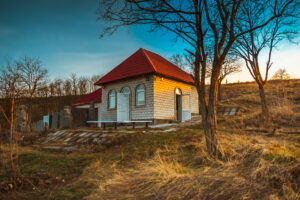
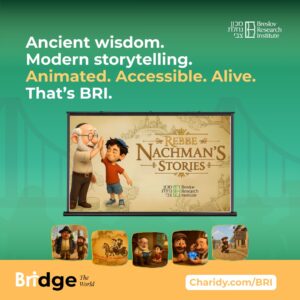
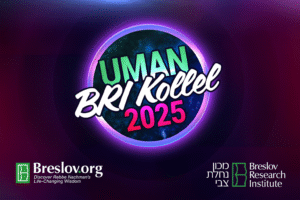
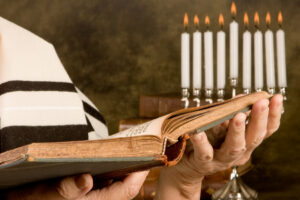

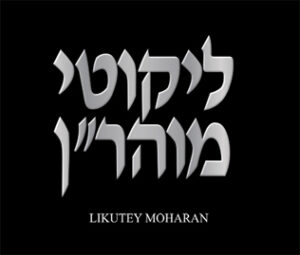
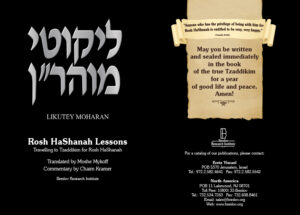
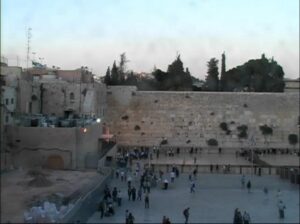

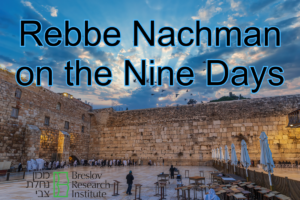
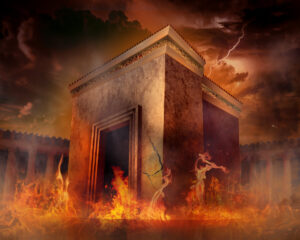
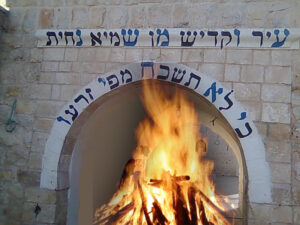








8 Responses
I have not seen the magazine (i would like to) or the comments (would like to). Yet in the years i have been trying to be a Breslover, i have heard many things about the Rebbe & his chassidim. “I have searched, and I have found”. Thank You for your answer against the multitudes that strive with us-we seek the truth-they seek the wind…..
Nice piece. Good defense.
Actually, the Chofetz Chaim does instruct everyone to do hisbodedus. The folowing is from the Choftz Chaim’s sefer Likutei Amarim chapter 10. He says the reason why we have our troubles is that we don’t cry out to Hashem. He says the thrice daily standard prayers aren’t enough because they become rote. Several times a day one should daven to Hashem in his own words from his house. The writer of the letter must be ignorant of the Chofetz Chaim’s seforim, as he is also ignorant of the laws of motze shem ra.
As for saying that our Hisbodedus isn’t the same as the Chofetz Chaim. Well, neither is our Torah study, Shachris or anything else. Should we disgard all mitzvos because they aren’t of the same quality as the Chofetz Chaim’s?
Very well written and to the point. I just would take the word damn out. It is a word with very negative conotations.
Mistomo this response is for people who may become confused by the booorishnes on parade as sophistication these laitzim have no interest in exploring anything so uncomfortable like the possibility of arousing them from their present slumber/status/routine/world outlook/etc by actually forcing them to question themselves and thier suroundings. Especially since they themselves know that the Reeds they rely on so weak they are already really broken.
@wolf tenenbaum Thank you. The post has been updated.
@A Talmid Thank you. The post has been updated.
@Shlomo
Thank you. The post has been updated.
As we all know, when Hashem presents his children with a precious stone the evil one is always around to steal it from us. Doesnt R Nachman state that one has to be zoiche to see the truth.
As R Nosson said when the winds of evil tried to lift him away, we must only defend oursleves and not go on the offensive. That in itself is sthg truly amazing, revealing his exemplary middos.
I havnt read the initial letters but the response is commendable.
Hatzlocha